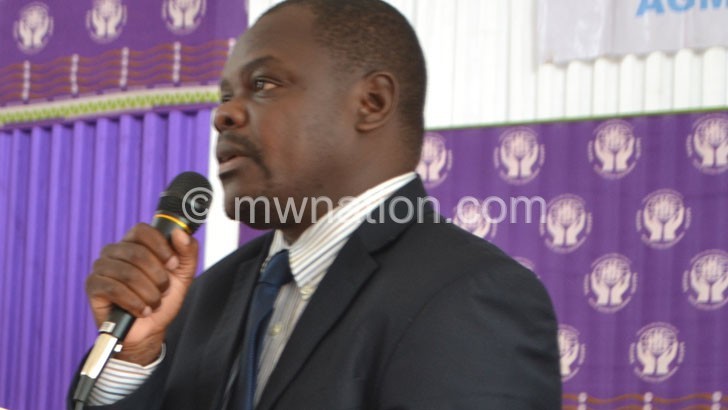Micro lending institutions against interest capping
Malawi Union of Savings and Credit Cooperatives (Muscco) and Malawi Microfinance Network (Mamn) yesterday pleaded with Parliament not to proceed with the plan to cap interest rates through the proposed Financial Services Act (Amendment) Bill.
The two institutions separately made their stand when they appeared before the Parliamentary Public Accounts Committee (PAC), Government Assurance Committee and the Women’s Caucus that has been convened to consult stakeholders in the financial sector on the Bill.

On his part, Muscco acting chief executive officer Fumbani Nyangulu said its affiliates raise their own capital and set their own interests which are later shared among themselves; hence, capping of interests would not benefit them.
He said Muscco, which is an umbrella body of Savings and Credit Cooperatives (Saccos), does not operate to make profits like commercial banks, but aims to promote a saving culture and empower communities economically.
Said Nyangulu: “We have two positions as Muscco. Our strong position is that Saccos, in their nature of business, are member owned. They bring their own capital and they decide their own interest rates to enable them recover their costs. Whenever there is surplus, they share the it which is different from other financial players.
“So, we submitted that Saccos should be left to operate on their own as per member decisions and without capping of interest rates. If members charge themselves high interest rates, it’s in their own benefit because at the end of the day, they share the high returns. So why should they cap?”
He explained that if their proposal does not succeed, Saccos in rural areas will suffer due to high operation costs, which will lead to their death.
On his part, Malawi Microfinance Network board chairperson Corrie Mulder said they are not opposing the interest capping proposal but rather they are proposing the implementation of the Consultative Group to Assist the Poorest, popularly known as the CGAP Model, which was set by the World Bank.
He said the network has since proposed to the Reserve Bank of Malawi (RBM) for a fixed six percent monthly interest rate and operational charges for lending to customers.
Mulder said: “In working with the RBM governor, we proposed for a CGAP Model to determine a fee and sustainable interest rates for Malawi. What we have agreed and seen that is doable is the six percent interest rate and fees that some microfinance charge. We believe this is achievable by most of microfinance institutions. So, it’s up to the committee to look at our proposal because our operational model is not comparable to commercial banks.”
He said the network has 55 members, only 10 of which are big while the rest are small and some are working with donor support to improve lives of citizens through soft loans.
Joint committee chairperson Alekeni Menyani said yesterday’s consultations were not to find whether financial institutions agree to the Bill or not, but to listen to proposals on how best the Bill can be implemented in a fair manner once passed in Parliament.
He observed that the Bill has the backing of the majority of Malawians who are suffering due to high interest rates that punish them when repaying loans.
Said Menyani: “It has become a necessity for Parliament to consider passing the Bill after these consultations because we see that rules of the financial market forces have failed us.
“Most borrowers have been punished by these harsh interest rates, the terms and conditions for borrowing have led to people paying perhaps four times the amount of the loan that has resulted in banks making unprecedented profits in our economy which is regarded as volatile.”
The Bill seeks to amend the Financial Services Act Clause 44:05 of the laws of Malawi to regulate interest rates on loans obtained from banks and other financial lending institutions which have hindered most citizens from servicing loans, in some cases leading to the seizure of property.
The Bill recognises that the problem on the ground requires collective responsibility to mitigate high interest rates on loans.
The Bill not only focuses on banks and other institutions but also RBM and Treasury.
The Bill seeks to amend the Act by inserting in Part VII, a new Section 34A which, among others, will make provision for: regulating interest rates, setting the maximum recovery from any loaned amount, setting policy rate and setting Treasury bills rate.
The Bill envisages that by addressing the issues, financial institutions will be more inclined to fully exploit the inflation declines for the benefit of Malawians.





